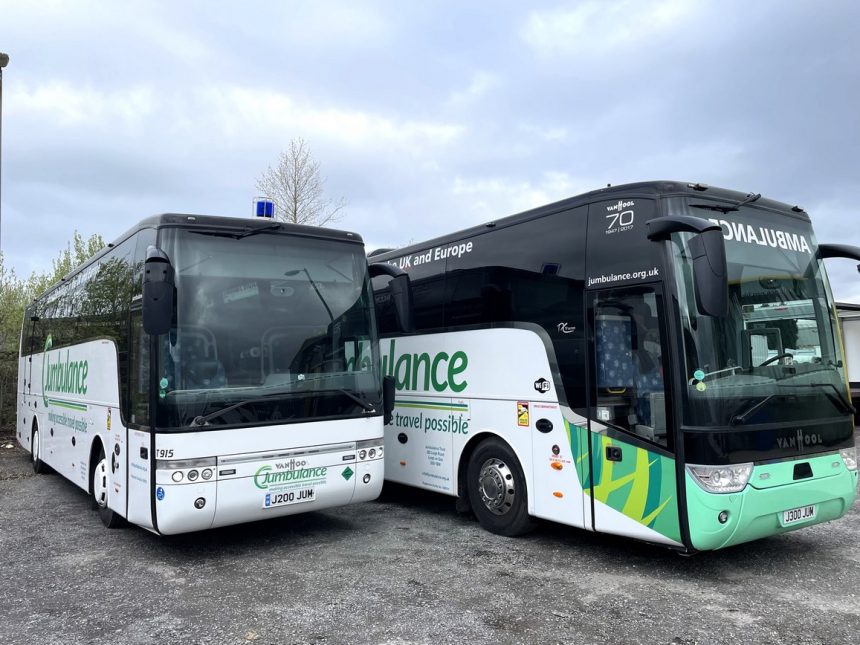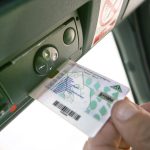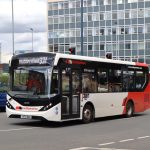Coaches carrying stretcher beds and making pilgrimages to Lourdes have been part of the industry since the 1970s. Today, one operator of these – Jumbulance – looks for new coach operator partners
It’s an early memory for many of us, the sight of a full-size coach fitted with blue ‘emergency services’ lights on the roof. With ‘Ambulance’ wording on the sides, front and rear, and branded as ‘Jumbulance’, the term referring to a jumbo ambulance, these seemed to be exotic vehicles, often far removed from regular coaching fleets.
Originally operated by the Across Trust, a charity established in the 1970s, these vehicles took disabled and terminally ill passengers on Christian pilgrimages to Lourdes in the south of France. In 1980, heads were turned even further when the Trust took delivery of its first Van Hool Alligator articulated coaches, offering two decks, an indication of the demand for the bespoke service being offered. Four versions of the Alligator were produced with a capacity of between 40 and 44, including 12 or 14 beds and the rest as regular seating. Today, two operators continue to provide these services.
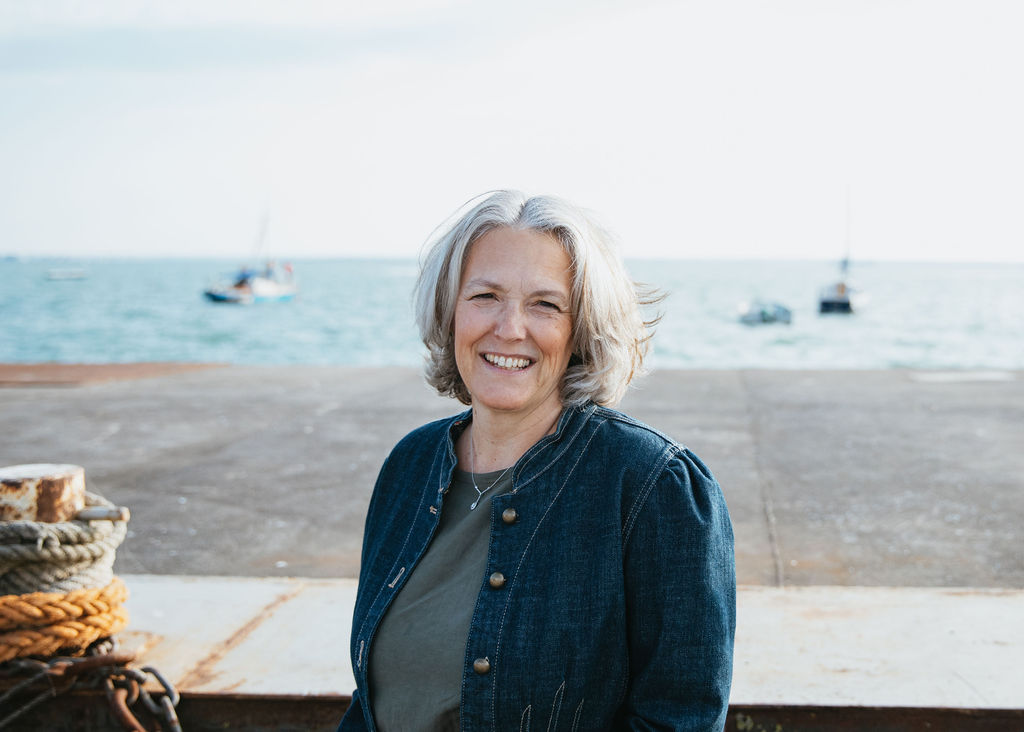
The Jumbulance inspiration begins
It was in the 1980s that two key players in Jumbulance operation today, Kathryn Salveson MBE, and Caroline Southgate, first travelled on the coaches. Kathryn was a volunteer who organised groups. Caroline’s brother, Anthony, was disabled and couldn’t travel by train. Caroline was aware of the Jumbulance service, so when the opportunity arose in 1980 for the family to take a holiday on the bespoke coach to Lourdes, they took it. In 1983 Anthony wanted to go again. His school and the family’s parish put a new, private trip together and hired in from the Across Trust. Volunteer helpers, including Caroline on that trip, were and remain a vital element of Jumbulance trips to this day.
However, by the 1990s the niche market that the Trust had generated was being challenged by the growth of accessible travel by plane and train. In 2001, Kathryn Salveson saw an opportunity to build on the work already achieved by Across, recognising the potential in opening up the bespoke service to a wider audience. She set up the New Jumbulance Travel Trust and bought one of the Across Trust’s coaches. In 2007 the name changed to Jumbulance Trust. Today, the Across Trust and Jumbulance Trust complement each other.
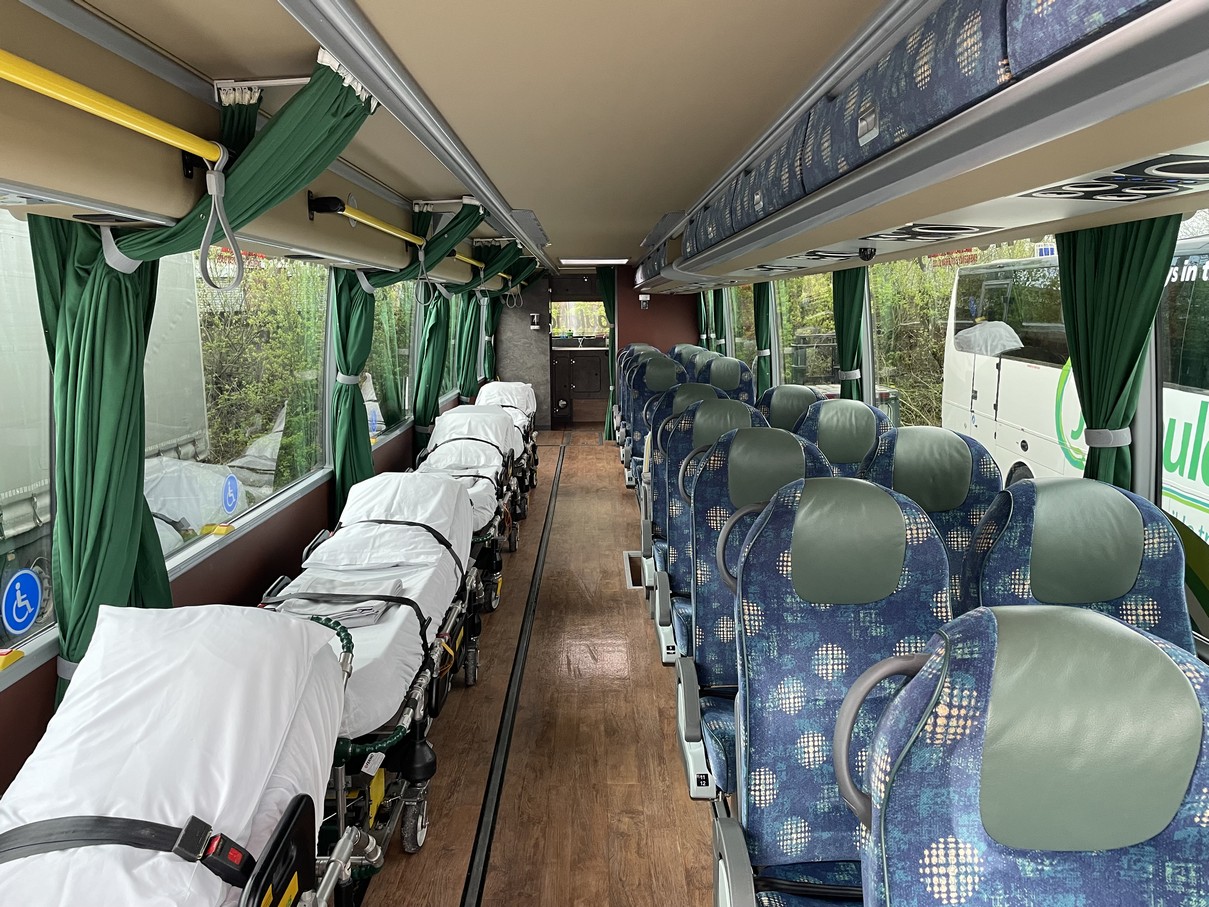
Value of travelling together
As it moves to be even more responsive to the needs of the disabled community, Jumbulance Trust is looking to partner with other coach operators. To find out more I travelled to Leigh-on-Sea in Essex, the Trust’s administrative hub, to meet Caroline Southgate. Inspired by her 1983 trip to Lourdes, Caroline became a qualified physiotherapist. In 2012 she set up a successful company focusing on delivering care at home. In 2022 that led her to get involved with the Jumbulance Trust, becoming Chair in 2023.
“Those early experiences have guided my life,” she says. “I’m passionate about maintaining quality in the delivery of community-based care. What I’ve learnt is that users of the service really value the opportunity to travel together. Our Jumbulances are an alternative to a private car or a local authority minibus. Going to Lourdes undoubtedly brings a comfort to many. But going in a group and immersing yourself in that group, either as a passenger or as a volunteer helper, well, to my mind, that’s the miracle!”
Caroline explains that Kathryn Salveson, supported by her husband Ronald, not only established the Jumbulance Trust, but is now its Life President.
“Kathryn is a remarkable person,” she says. “Fundraising is an absolutely crucial element of what we do. In the early days it was her sterling work in that area that ensured the Trust had a future. Everything we do is private hire and it costs around £2,000 a day to operate a coach. But we can’t ask groups to pay that sort of money so we fundraise to help reduce the hire cost. Our aim is for around 40% subsidy. There’s an enormous amount of gratitude for legacies. Our users are passionate about what we do and will leave money to us.”
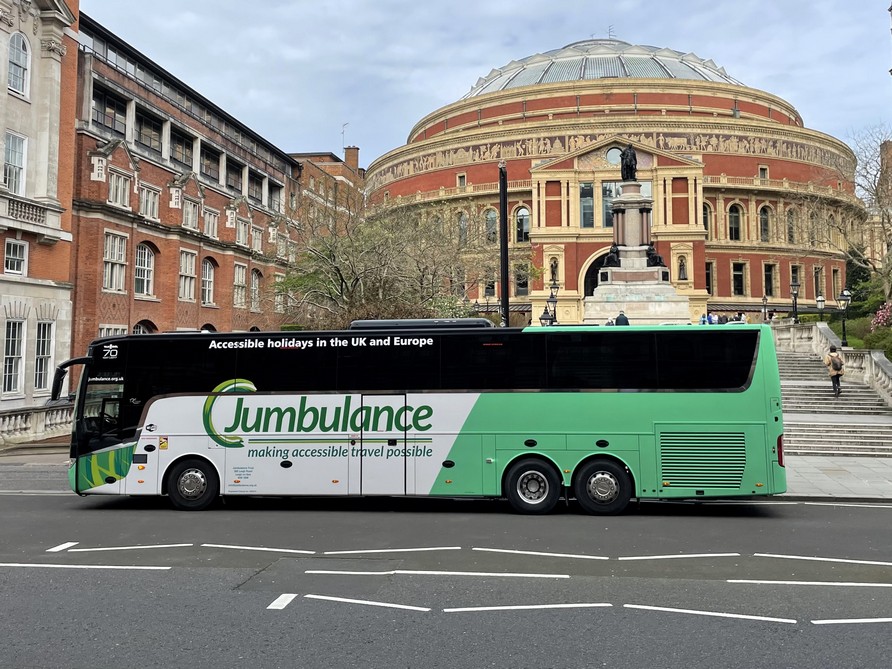
Operator partnership desire for Jumbulance
I ask Caroline about her wish to engage with more coach operators.
“There’s no doubt that we’re heading to a greater awareness of disabled travel,” she says. “Jumbulance is supported by local and regional, self-autonomous groups,” she says. “These give their members the opportunity to travel together. The coaches offer flexibility. We can take a family group with only one wheelchair, or on longer journeys we can take four passengers in stretcher beds. I want to see many more of these Jumbulance groups across England and Wales by 2030. We’re accessible, meeting the needs of the population. It’s social. So to do that we’re looking for coach operator partners who can provide a coach to be part of a Jumbulance trip, especially in the UK. In turn, working as a partner means our specialist vehicles are available to operators if they have the requirement.”
There’s currently a 50:50 split between the Trust’s domestic and continental activities with around 150 days of coach operation. Some are day trips but the continental holidays will usually run for six or seven days. The Trust works closely with a travel agency partner, Surrey-based Avocet Travel Management, that manages the travel and accommodation requirements.

Introducing J2 and J3
John Shekelton, the Trust’s only full-time driver, has driven various Jumbulance vehicles since 1993.
“I’ve always liked the Van Hools,” he says. “Right at the start it was Van Hool who said yes, we can adapt a coach for this. We have two coaches: J2, a Van Hool T915 Acron with 16 fixed seats and room for five wheelchairs or four stretcher beds, and J3, a 14m tri-axle T917 Acron with 18 fixed seats and the same capacity for beds and wheelchairs. Both vehicles have an accessible lift, a large washroom and a rear kitchen area. There’s air conditioning and wi-fi. The bespoke specification brought J3 in at around £400,000. Both coaches are left-hand-drive, a move that proves especially useful on our longer continental holidays.
However, on domestic work, with the lift therefore being on the traditional offside, we do have the challenge of finding suitable places to deploy it. The two coaches are currently based at a hauliers yard in Bolton. Later this year they will move to a new base in Lincolnshire. The vehicles were originally registered as ambulances so were able to carry blue lights. They’re now registered as Disabled Passenger Vehicles and on J3 the blue lights have gone.”
Challenges ahead
Caroline Southgate is clear about the challenges that lie ahead.
“The camaraderie between all of us and the groups we carry remains the same as ever,” she says. “Unsurprisingly, our main challenge is finding funding and volunteers. Our volunteers pay to travel with us. Yes, it’s a holiday, especially to our continental destinations, but it’s also hard work. However, it is so rewarding. We would love routeone readers to consider volunteering. You can find out more on our website. As for other challenges, we tend to use Le Shuttle and the tunnel because on a ferry our passengers have to leave the coach. That can be a real challenge for those in beds. But for our July trips during the Olympics, Le Shuttle wanted to stop us travelling. In the end the company relented, but prices are high. When we do use the ferry we generally travel with DFDS. That team is superb in providing staff to take our passengers to the lifts.”
Caroline pays tribute to founder, Kathryn Salvesen.
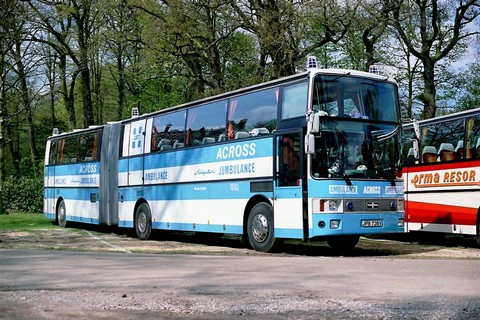
“Kathryn is now 93,” she says. “As we speak she’s about to lead a group to the Netherlands to visit Keukenhof Gardens. She’ll be supported by Robin Cattle, a previous member of the Jumbulance Trust team and now a very important volunteer. Kathryn says this will be her final trip on our Jumbulance. In 2001 she took the existing Jumbulance product and through hard work and a steely determination has developed something really rather special. With the help of our small team, our volunteers and lots of donations, I look forward to celebrating our 25th anniversary in 2026, with a new coach, J4, with new coach operator partners, and being even more responsive to the needs of the disabled community.”
For more information, go to www.jumbulance.org.uk




















